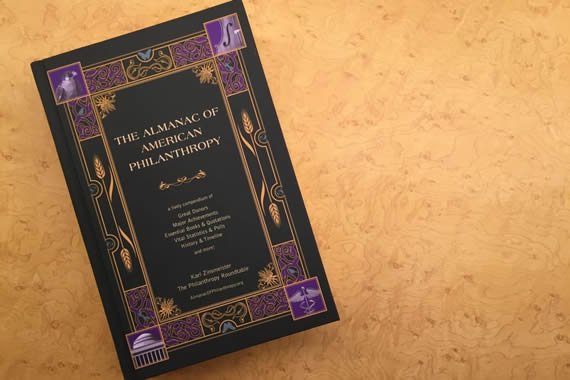
The inaugural publication of The Almanac of American Philanthropy
Thomas Jefferson famously wrote that all men were endowed with the right to "life, liberty and the pursuit of happiness." However, what is often unremarked upon is the ways in which charitable giving is at the cornerstone of each of these unalienable rights. Andrew Carnegie understood this well. Carnegie realized both the power and limitations of charity; it was not enough to just dole out funds, rather, he implored, one must consider a donation's impact on its recipients.
Public libraries, national parks, cultural institutions, elite universities, and esteemed medical research facilities all stem from the donations of men and women who viewed their fortunes as a mandate to better society and further humanity. The impact of a large-scale donation is so vast that the individual American likely interacts with the fruits of philanthropic action on a daily basis without even realizing it.
Being that philanthropy is so deeply etched into the American way of life, it is somewhat remarkable that there has not yet been a comprehensive accounting of the nation’s major benefactors, largest charitable ventures, or esteemed foundations.
The recently published Almanac of American Philanthropy, by Karl Zinsmeister, has undertaken that task, and sought to contextualize this rich history. Zinmeister, a former public policy researcher at the American Enterprise Institute and current vice president at Philanthropy Roundtable, aimed to create a definitive resource that would chronicle the broad landscape of American philanthropy. The Almanac covers everything from individual donors to large-scale foundations, as well as the development of philanthropy as a concept over time. It is replete with anecdotes, quotations, timelines, and rich details that bring the subject to light in new ways, causing the casual reader to rethink any previous one-dimensional views they may have initially brought to the subject.
The Almanac will be distributed to libraries, donors, and major U.S. foundations across the country, and is for sale on Amazon for $25. However, in the spirit of giving, its content is also available free of charge on the Philanthropy Roundtable website.
The inaugural tome is surprisingly comprehensive, covering all major philanthropic activity since the 1620 Mayflower Compact, and will be revisited, updated, and amended every couple of years. To that end, Philanthropy Roundtable welcomes improvements, corrections, or information from the general public—simply email them at almanaceditor@philanthropyroundtable.org.


